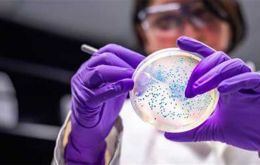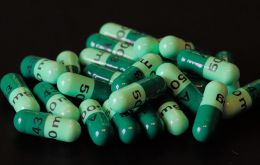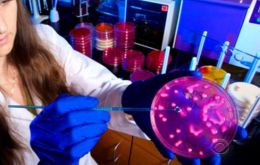MercoPress. South Atlantic News Agency
Tag: antibiotics
-
Thursday, October 12th 2023 - 07:57 UTC
Strong campaign in UK to stop farmers from overusing antibiotics in their animals

Hospital and school caterers are not doing enough to stop farmers from overusing antibiotics in their animals, according to United Kingdom campaign groups. Such overuse raises the risk of antibiotic resistance rendering key human medicines ineffective.
-
Thursday, August 4th 2022 - 09:18 UTC
Cuba to produce antibiotics locally to save on pricy imports

Cuban health authorities announced earlier this week that the Caribbean nation will produce some antibiotics in high demand at Intensive Care Units (ICUs) to save on their high price.
-
Thursday, May 26th 2022 - 21:28 UTC
Genes make Antarctica bacteria immune to antibiotics

A team of Chilean scientists doing research in Antarctica has come up with bacteria resistant to antibiotics and other man-developed treatments thanks to information passed on through genes, it was reported.
-
Wednesday, November 4th 2020 - 08:36 UTC
Chilean salmon farmers struggling to cut antibiotic usage to boost the reputation of its products

For Chile’s salmon farming industry, less could be more. That is, less antibiotic use could improve the sustainability of the country’s salmon aquaculture industry and boost the reputation of its products.
-
Tuesday, February 5th 2019 - 08:49 UTC
Bolsonaro in semi-intensive care and treated with broad spectrum antibiotics

Brazilian President Jair Bolsonaro was in semi-intensive care in hospital on Monday following abdominal surgery and was set to stay in the hospital at least another week, his office said. Concerns of potential infection meant the medical team wanted more time to monitor the far-right leader, 63, after the operation a week ago to remove a colostomy bag, the office said.
-
Monday, February 19th 2018 - 08:59 UTC
US scientists discover new family of antibiotics that combat drug resistant diseases

US scientists have discovered a new family of antibiotics in soil samples. The natural compounds could be used to combat hard-to-treat infections, the team at Rockefeller University hopes.
-
Friday, November 10th 2017 - 17:35 UTC
WHO, FAO and OIE call for responsible use of antibiotics in humans and animals

In the lead-up to World Antibiotic Awareness Week (13-19 November 2017), the Food and Agriculture Organization of the United Nations (FAO), the World Health Organization (WHO) and the World Organisation for Animal Health (OIE) are together calling for responsible use of antibiotics in humans and animals to reduce the emergence of antibiotic resistance.
-
Wednesday, November 8th 2017 - 18:30 UTC
Stop using antibiotics in healthy animals to prevent the spread of resistance, warns WHO

The World Health Organization is recommending that farmers and the food industry stop using antibiotics routinely to promote growth and prevent disease in healthy animals.
-
Wednesday, September 20th 2017 - 22:01 UTC
The world is running out of antibiotics, WHO report confirms

A report – Antibacterial agents in clinical development – an analysis of the antibacterial clinical development pipeline, including Mycobacterium tuberculosis – launched on Tuesday by the World Health Organization (WHO) shows a serious lack of new antibiotics under development to combat the growing threat of antimicrobial resistance.
-
Friday, January 9th 2015 - 06:51 UTC
A new family of antibiotics to kill serious infections, discovered by US, UK and German scientists

Scientists have discovered a new family of antibiotics, teixobactin that can kill serious infections in mice without encountering any detectable resistance offering a potential new way to get ahead of dangerous evolving superbugs.
